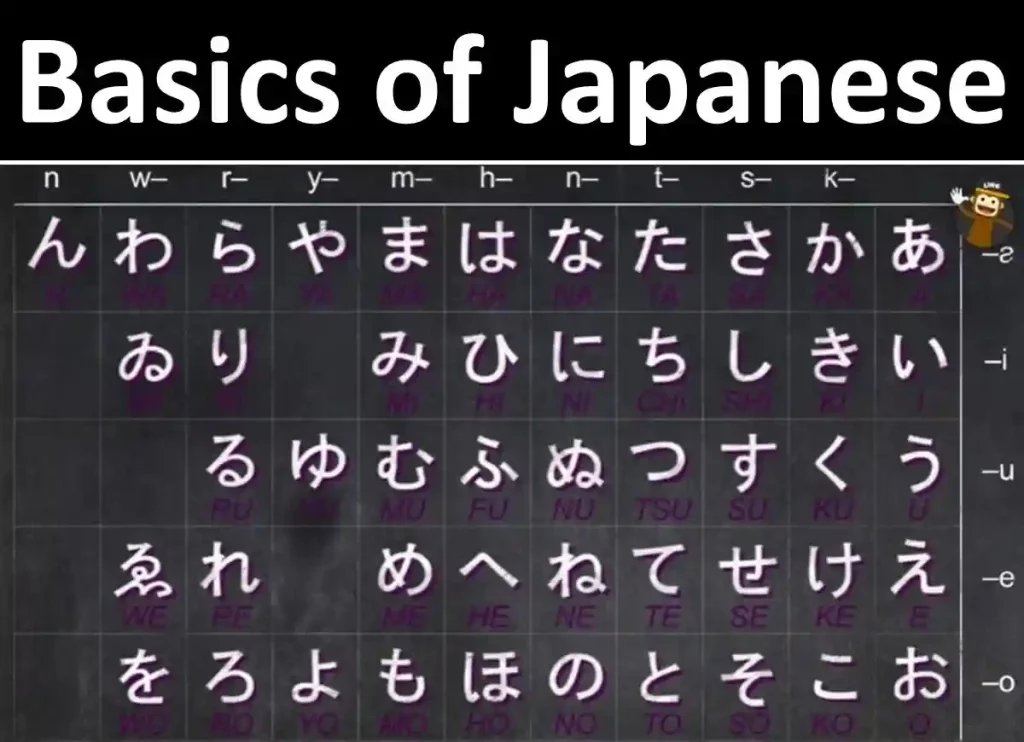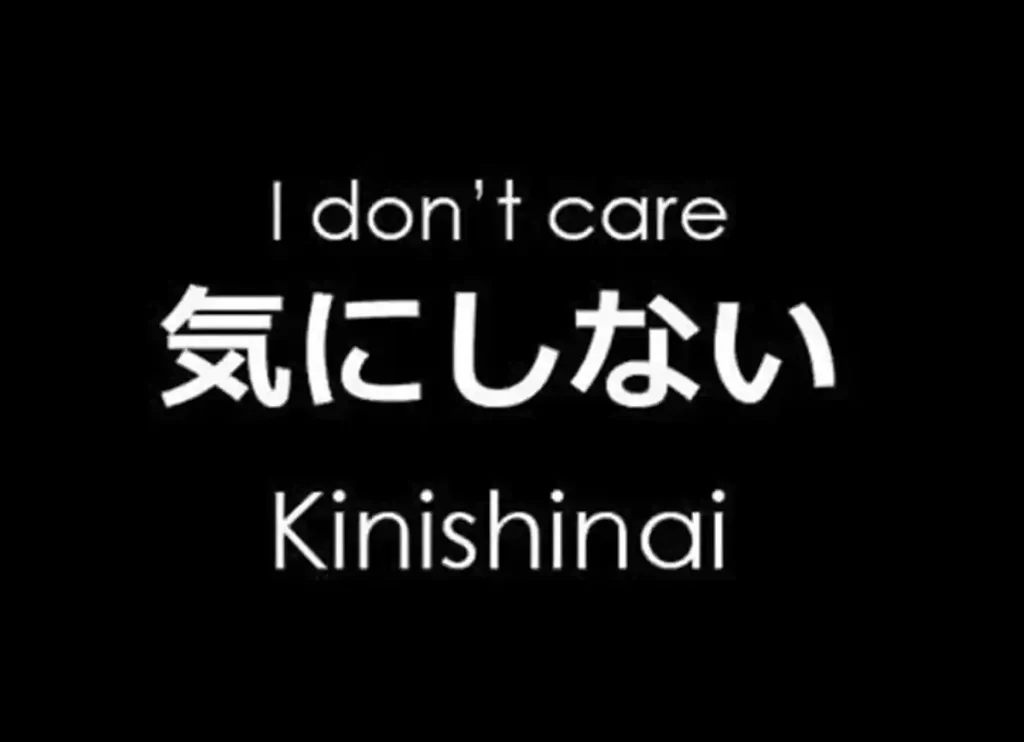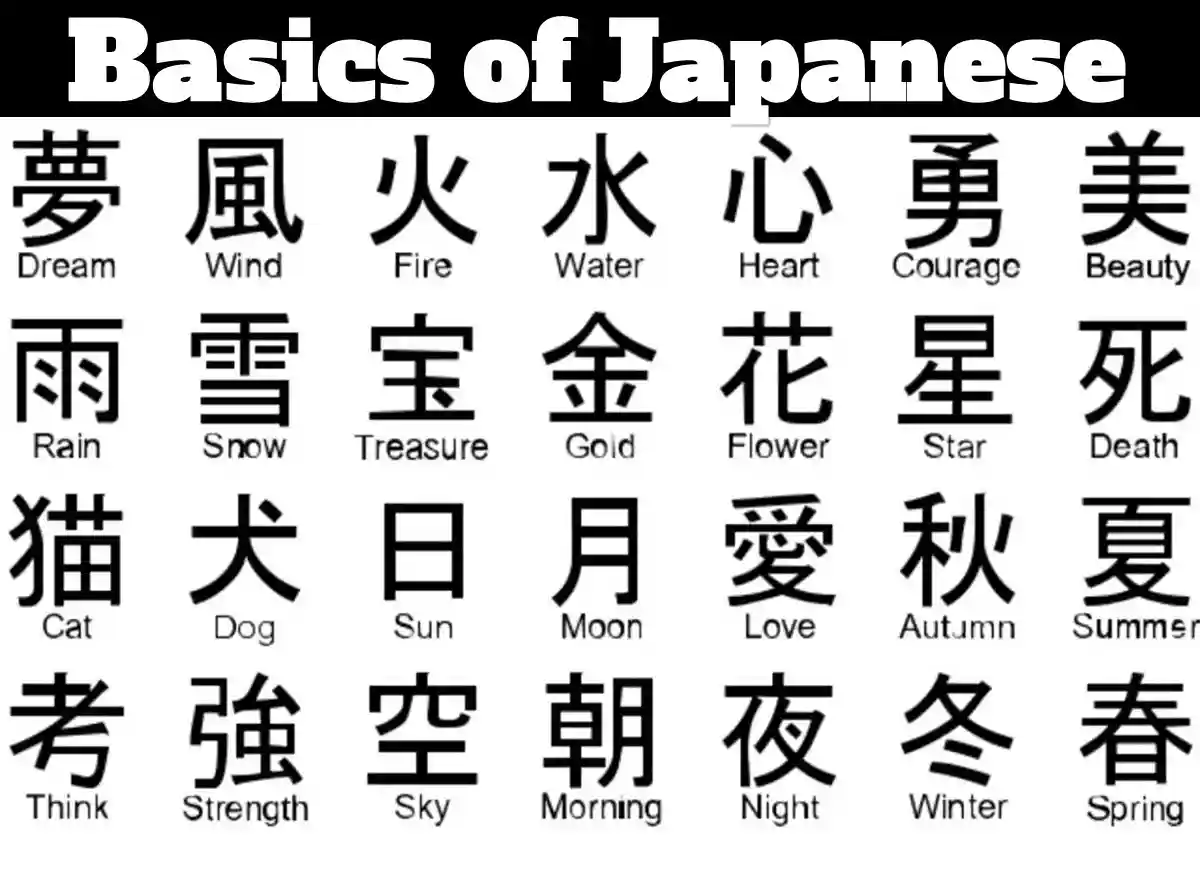If you’re interested in exploring a fascinating new language and culture, look no further than Japanese. As one of the world’s most unique and complex languages, Japanese offers a rich and rewarding experience for learners of all levels. Whether you’re a complete beginner or have some experience with the language, mastering the basics of Japanese can open up a world of opportunities for communication, business, and cultural exchange.
In this blog post, we’ll dive into the essentials of the basics of Japanese, including its writing systems, grammar, and honorifics. We’ll also explore why learning Japanese is important in the world today, and how it can benefit you both personally and professionally.
First, let’s talk about the writing systems used in Japanese. Unlike many other languages, Japanese uses three distinct scripts: kanji, hiragana, and katakana. Kanji are characters borrowed from Chinese and used to represent words, concepts, and names. There are over 2,000 kanji characters commonly used in Japanese, and mastering them takes time and practice.
Hiragana and katakana are two syllabic writing systems unique to Japanese. Hiragana is used for native Japanese words and verb conjugations, while katakana is used for foreign words and onomatopoeia. Together with kanji, these three writing systems create a complex and beautiful visual language that is integral to Japanese culture.
Next, let’s talk about Japanese grammar. Japanese grammar is vastly different from English grammar, with a subject-object-verb (SOV) word order and particles that mark grammatical functions. Additionally, there are no articles, plurals, or tenses in Japanese, which can make it difficult for English speakers to grasp at first. However, once you understand the basic structure of Japanese sentences and the role of particles, the language becomes much easier to navigate.
Finally, we’ll explore the unique honorific system used in Japanese. Honorifics are expressions used to show respect, and are an essential part of Japanese culture and communication. There are many different honorifics in Japanese, ranging from formal to casual, and they can be used to indicate a person’s social status, relationship to the speaker, and more. Mastering the honorific system is an important part of learning Japanese, as it allows you to communicate with politeness and sensitivity.
So why should you learn Japanese? There are many reasons, both personal and professional. For one, Japan is a fascinating country with a rich cultural heritage and vibrant arts scene. Learning Japanese can deepen your appreciation for Japanese music, film, literature, and more.
Additionally, Japan is a major player in global business, with many multinational corporations and industries based in Japan. Knowing Japanese can open up exciting career opportunities and enhance your ability to work and communicate with Japanese colleagues and clients.
In summary, the basics of Japanese offer a complex and rewarding language learning experience. By mastering its unique writing systems, grammar, and honorifics, you can gain a deeper understanding of Japanese culture and enhance your language skills. So why not take the first step on your Japanese language journey today?
Quran Corner
Suggested Read: wbw quran, houseofquran, all surah in quran, quran list of surahs, how many chapters are in the quran, quran with urdu translation pdf, the chapters of the qur an, surah fatiha english translation pdf
Math Corner
Suggested Read: algebra functions and data analysis, math kangaroo past papers, basic geometry worksheets pdf, algebra 2 formula sheet pdf, geometry formulas pdf, algebra 2 cheat sheet pdf
Fiqah Corner
dua for stress and anxiety, sufism definitie, can i divorce my wife for not sleeping with me, islamic healing prayer, muslim story of creation, are ephemeral tattoos haram
Arabic Corner
Suggested Read: arabic books for beginners free, learn quranic arabic free, quran tutor online for free, islamic healing prayer, how many rakats in each prayer, ayat kursi in english , dates in arabic
Best Places
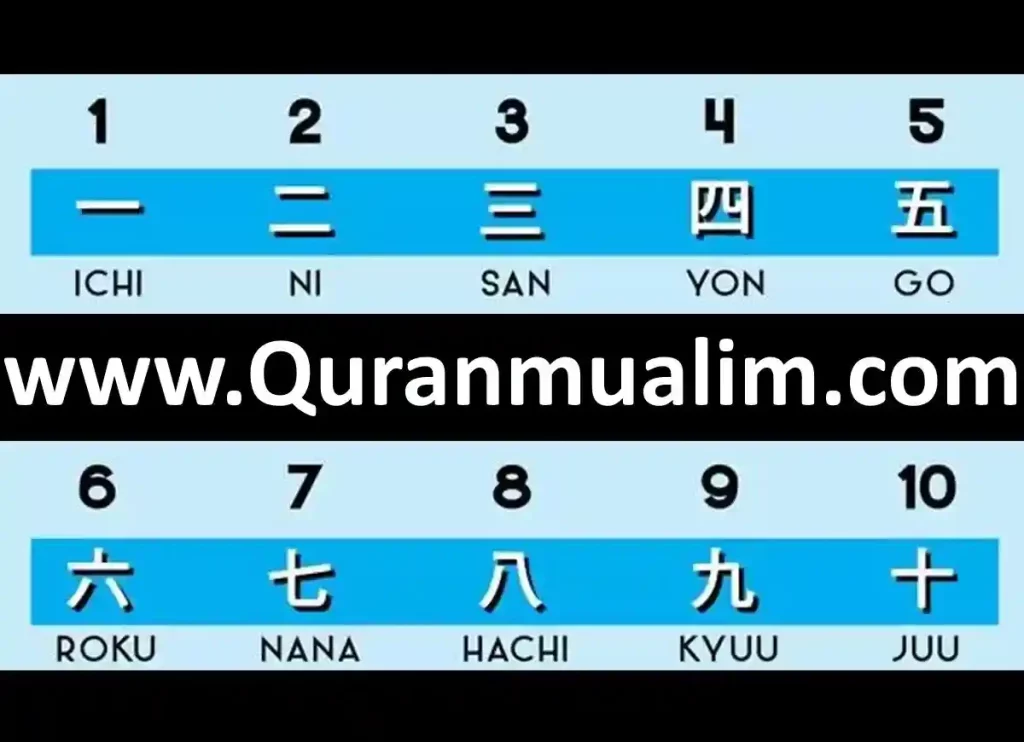
Do you want to study Japanese?
Even if Japanese isn’t always your first preference, It doesn’t remember if you’re learning Japanese for tour or language exchanges, it’s correct to recognize the critical words and phrases of Japanese. This listing will assist you get commenced.
Before we start, a note from Fluent in Three Months: You can chat in Japanese for up to fifteen mins the usage of the “Fluent In 3 Months” approach. It takes handiest 90 days. Click this link to research greater.
- Japanese Words For Beginners
- Japanese Greetings
- Yes, hai ( Hai).
- No: iie (iie)
- Hello: konnichiha (konnichiwa)
- Goodbye: ziyane (ja ne)
- Thank you: arigatou
- I’m Sorry: gomennasai (gomen nasai)
- Excuse me: sumimasen (sumimasen)
Japanese Pronouns
- I: Si ( Watashi).
- You can: anata ( Anata).
- This is kore ( Kore).
- That: sore ( sore).
- He: Bi ( Kare).
- She: Bi Nu (kanojo)
- They: Bi ra karera
Japanese Numbers
- One: ichi (ichi)
- Two: ni ni
- Three: san san
- Four: shi ( Shi) or youon ( , yon).
- Five: go (move)
- Six: roku roku
- Seven: nana nana or shichi
- Eight: hachi (hachi)
- Nine: ku (ku) or kiyuu (kyuu)
- Ten: ziyuu (juu)
People, Japanese, Pronunciation and Meaning
- watashi
- Watashi
- I/me
- Anata
- Anata
- You
- oMu san
- okaasan Okaasan
- Mother
- oFu san
- Otousan Otousan
- Father
- oYe San
- oziisan Ojiisan
- Grandfather
- oPo san
- obaasan Obaasan
- Grandmother
- ozisan
- Ojisan
- Uncle
- Obasan
- Obasan
- Aunt
- oXiong San
- oniisan Oniisan
- An older brother
- oZi san
- oneesan Oneesan
- Sister older
- Di
- otouto Otouto
- Brother younger
- Mei
- imouto Imouto
- Younger sister
Numbers, Japanese, Pronunciation and Meaning
- Yi
- ichi Ichi
- One
- Er
- ni Ni
- Two
- San
- san San
- Three
- Si
- shi/yon Shi/yon
- Four
- Wu
- go Go
- Five
- Liu
- roku Roku
- Six
- Qi
- shichi/nana Shichi/nana
- Seven
- Ba
- hachi Hachi
- Eight
- Jiu
- kiyuu Kyuu
- Nine
- Shi
- ziyuu Juu
- Ten
Months, Japanese, Pronunciation and Meaning
- Yi Yue
- ichigatsu Ichigatsu
- January
- Er Yue
- nigatsu Nigatsu
- February
- San Yue
- sangatsu Sangatsu
- March
- Si Yue
- shigatsu Shigatsu
- April
- Wu Yue
- gogatsu Gogatsu
- May
- Liu Yue
- rokugatsu Rokugatsu
- June
- Qi Yue
- Shichigatsu Shichigatsu
- July
- Ba Yue
- hachigatsu Hachigatsu
- August
- Jiu Yue
- kugatsu Kugatsu
- September
- Shi Yue
- ziyuugatsu Juugatsu
- October
- Shi Yi Yue
- ziyuuichigatsu Juuichigatsu
- November
- Shi Er Yue
- ziyuunigatsu Juunigatsu
- December
Days of the Week and Times of the Day, Japanese, Pronunciation and Meaning
- Yue Yao Ri
- getsuyoubi Getsuyoubi
- Monday
- Huo Yao Ri
- Kayoubi Kayoubi
- Tuesday
- Shui Yao Ri
- Suiyoubi
- Wednesday
- Mu Yao Ri
- mokuyoubi Mokuyoubi
- Thursday
- Jin Yao Ri
- Kinyoubi Kinyoubi
- Friday
- Tu Yao Ri
- Doyoubi DoYoubi
- Saturday
- Ri Yao Ri
- nichiyoubi Nichiyoubi
- Sunday
- Zuo Ri
- Kinou Kinou
- Yesterday
- Jin Ri
- kiyou Kyou
- Today
- Ming Ri
- ashita Ashita
- Tomorrow
- Zhao
- asa Asa
- Morning
- Zhou
- Hiru Hiru
- Noon
- Xi Fang
- yuugata Yuugata
- Evening
- Ye
- yoru Yoru
- Night
Food, Japanese, Pronunciation and Meaning
- Shi beWu
- tabemono Tabemono
- Food
- Yin miWu
- nomimono Nomimono
- Drinks
- GoFan
- gohan Gohan
- Rice/meal
- Shui
- mizu Mizu
- Water/bloodless
- oTang
- oyu Oyu
- Hot water
- Rou
- niku Niku
- Meat
- Ye Cai
- Yasai Yasai
- Vegetable
- Yu
- sakana Sakana
- Fish
- Ramen
- Ra-men
- Ramen
- Shou Si
- sushi Sushi
- Sushi
- Onigiri
- Onigiri
- Onigiri
Basic Japanese Nature Words
- Chuan kawa – River
- Hua (hana) – Flower
- Yu Sakana – Fish
- Kong Sora – Sky
- Shan ( Yama)
- Yu ( ame ) – Rain
Basic Japanese phrases for announcing time
- Jin Ima – Now
- Jin Ri kyou – Today
- Zuo Ri (kinou) – Yesterday
- Ming Ri (asita) – Tomorrow
- Mei Ri (mai nichi) – Every day
- Mei Zhou Maishu – Each week
- Wu Qian (gozen)* – Morning
- Wu Hou Gogo – Afternoon
- Yue Yao Ri (getsuyoubi) – Monday
- Huo Yao Ri (kayoubi) – Tuesday
- Shui Yao Ri (suiyoubi) – Wednesday
- Mu Yao R ( Mokuyoubi – Thursday
- Jin Yao Ri (kinyoubi) – Friday
- Tu Yao Ri (douyoubi) – Saturday
- Ri Yao Ri (nichiyoubi) – Sunday
· Jin Nian okayotosh i_ – This is the yr
Japanese Body Parts Vocabulary For Beginners
- Er mimi – Ear
- Shou Te – Hand
- Zu (ashi) – Foot
- Mu me – Eye
- Kou Kuchi – Mouth
- Yan kao – Face
Japanese words for directions and places
- Yi ( Eki ). – Train station
- Bei (kita) – North
- Nan (minami) – South
- Xi ( nishi_) – West
- Dong Higashi – East
- Guo (kuni) – Country
- Wai Guo (gaikoku) – Gaikoku
- You ( Mighi )
- Zuo (hidari) – Left
- Ru Ku ( Iriguchi). – Entrance
- Chu Kou (deguchi) – Exit
Japanese words for guidelines and locations
- Yi eki – Station educate
- Bei (kita) – North
- Nan (minami) – South
- Xi ( nishi_) – West
- Dong Higashi – East
- Guo (kuni) – Country
- Wai Guo (gaikoku) – Gaikoku
- You mighi – Right
- Zuo (hidari) – Left
- Ru Ku ( Iriguchi). – Entrance
- Chu Kou (deguchi) – Exit
Time in Japanese
- Today: Jin Ri ( kyou).
- Tomorrow: Ming Ri ( Ashita).
- Yesterday: Zuo Ri (kinou)
- Now: Jin ( Ima).
- Before: Qian Ni ( mae).
- Later: Hou de (ato de)
Japanese Nouns
- Home: Jia ( Ie or Chui
- Shop: Dian (mise)
- Movie: Ying Hua (eiga)
- School: Xue Xiao (gakkou)
- Car: Che (kuruma)
- Town: Ting ( Machi).
- Music: Yin Le (ongaku)
- Family: Jia Zu (kazoku)
- Chu Shen ( , shusshin), Hometown
- Bathroom: toire (toire)
Japanese Verbs:
- To do: suru (suru)
- To be: desu (desu)
- To become: naru
- There is (inanimate), aru ( Aru).
- There is (living): (iru) ( (iru).
- To move: Xing ku (iku)
- To say: Yan u (iu)
- To see: Jian ru (miru)
- To come: Lai ru (kuru)
- To consume: Shi beru (taberu)
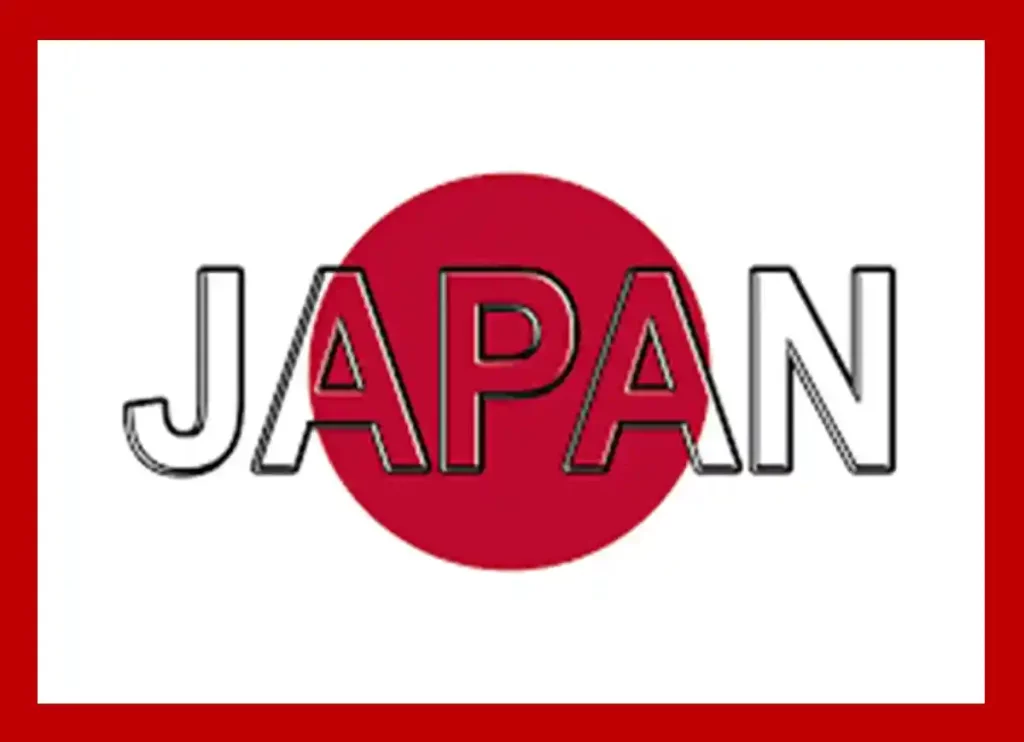
Japanese Greetings Everyday
- ohayougozaimasu! (Ohayou gozaimasu: “Good morning!”)
- konnichiha ( Konnichiwa ): “Hello” or “Good afternoon”)
- a, ___san. (Ahh, _-san: “Ah, Mr./Mrs. _”)
- iiTian Qi desune!(Ii tenki desu ne: “Good climate, huh!”)
- Yuan Qi desuka (Genki desu ka: “How are you?”)
- Jiu shiburi!(Hisashiburi: “Long time, no see!”)
- konbanha (Konbanwa: “Good nighttime”)
- oyasuminasai (Oyasumi nasai: “Goodnight”)
- ziyamata Ja Mata : “See You Later” or “Goodbye”)
- Other Aisatsu Greetings in Daily Life
- tadaima Tadaima: “I’m home”)
- okaerinasai (Okaeri nasai: “Welcome domestic” or “Welcome back”)
- Shi Li Shimasu Shitsurei Shimasu “Please excuse me (for going)”)
- oPi reYang deshita (Otsukaresama deshita: “Thanks for your difficult paintings”)
- Xing tsutekimasu (Ittekimasu: “I’m going”)
- Xing tsuteratsushiyai Itterasshai “Go and Come Back”)
- All Situations Basic Japanese Words & Phrases
- arigatougozaimasu (arigatou gozaimasu): “Thank you”
- gomennasai (gomen nasai): “I’m sorry”
- hai or un ( Hhai or un? : “Yes” (formal, casual)
- iie/uun ( ): “No”, (formal or informal).
- Ming Qian ha_ Namae wa: “My name _.”
- _ desu. ( DESU): “I’m” (*See word underneath).
- iidesuyo. (ii desu yo): “It’s accurate.”
- damedesu. (dame desu): “It’s terrible.”
- mouYi Du ishimasu. ( mou Ichido Onegai Shimasu).
- yutsukurioYuan ishimasu (yukkuri onegai shimasu): “More slowly, please”
- wakarimasen (wakarimasen): “I do not understand”
- Liang katsuta (yokatta): “Great!” or “I’m glad!”
- sumimasen (sumimasen): “Excuse me”
- douitashimashite (Dou itashimashite): “You’re welcome”
- Shao shiRi Ben Yu woHua shimasu (Sukoshi nihongo wo hanashimasu): “I speak a touch Japanese”
- mataHui imashiyou (Mata aimashou): “Let’s meet once more!”
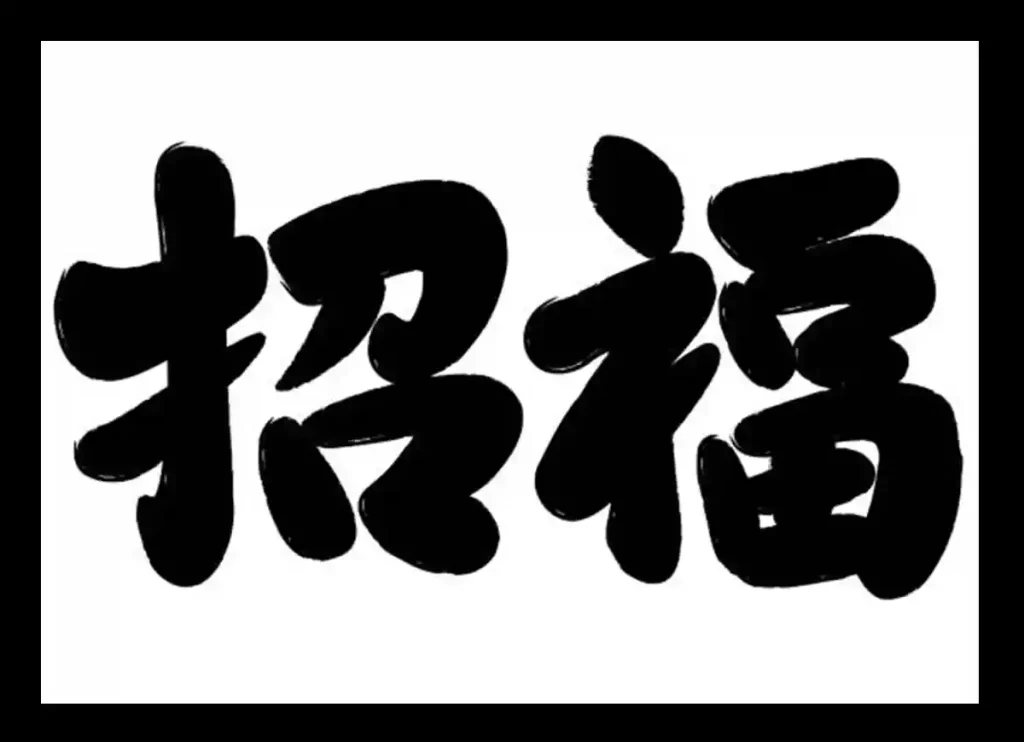
Japanese Questions to Enhance Your Conversation
To specific a question, you could increase your voice at the cease of any question phrase. Formally, however, you could add desuka ( desu ka) to any question word.
Let’s get started with the basics.
- Shui (dare): “Who?”
- He ( or nan: “What?”
- itsu (itsu): “When?”
- doko ( , doko), “Where?”
- Doushite ( doushite ): “Why?”
- dou ( dou: “How?”
- dochira? (dochira): “Which?”
And more beneficial Japanese questions:
- oMing Qian haHe desuka (o-namae wa nan desu ka): “What’s your name?”
- ikuradesuka (ikura desu ka): “How a lot Is It?”
- wakarimasuka (wakarimasu ka): “Do you apprehend?”
- hadokodesuka ( __ wa dokodesu ka: “Where is _?”
- korehaHedesuka ( , kore wa-nan desu):
- korehaHe Yi Wei desuka (kore wa nan imi desu ka): “What does this suggest?”
- Ri Ben Yu de_haHe desuka (nihongo de _ wa nan desu ka): “What is _ in Japanese?”
- Ying Yu woHua semasuka (eigo wo hanasemasu ka): “Can you talk English?”
- He tsuteYan ( nuani tte): “What have been you announcing?”
- _ gaarimasuka (_ ga arimasu ka): “Do you have __?”
- Da Zhang Fu desuka (daijoubu desu ka): “Are you ok?”
- Doushitanda ( Doushitanda ): “What’s the problem?”
- E-meru/Dian Hua fan Hao woJiao ( etemoraemasuka/denwa bago wo oshiete moaemasu.Ka).
- _ woLi Yong shimasuka (* wo riyou shimasu ka*): “Do you operate _?”
- itsuhaHui emasuka (Itsu wa aemasu ka): “When can we meet?”

In conclusion, Japanese is a fascinating language with a rich cultural heritage and complex linguistic structure. Learning Japanese can be a challenging but rewarding experience, providing access to one of the world’s most unique and vibrant cultures. Understanding the basics of Japanese can open up a world of opportunities for communication, business, and cultural exchange.
The fundamental elements of Japanese include three writing systems (kanji, hiragana, and katakana), a unique grammar structure, and an intricate honorific system. Mastering these elements requires dedication, practice, and an open mind to the language’s cultural nuances.
As with any language, Japanese is constantly evolving, with new slang and expressions emerging all the time. However, by developing a solid foundation in the basics of Japanese, learners can gain the tools and confidence needed to communicate effectively in a variety of contexts.
Moreover, Japanese is an important language in the world today, with over 130 million native speakers and a significant presence in global business and entertainment. Knowing Japanese can open doors to exciting career opportunities and enhance cultural exchange between Japan and other countries.
In conclusion, whether you’re interested in learning Japanese for business, travel, or personal growth, the language offers a rich and rewarding experience. By mastering the basics of Japanese, you can gain a deeper understanding of Japan’s culture, history, and people while also developing valuable language skills that can benefit you in a variety of contexts. So, take the first step in your Japanese language journey and explore the fascinating world of this unique and beautiful language.
